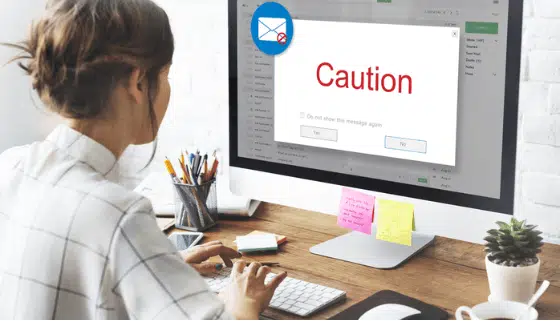Cybercrime is at an all-time high. In 2018 alone, illegal online activity accounted for over $1.5 trillion of damages to corporations and ordinary people alike. And as time goes on and the world becomes ever more digitized, cybercrime will only become more profitable.
For all the material losses that it can produce, hacking – for the most part – doesn’t involve overly technical or complicated software to get into people’s computers. Though it may come as a surprise to some, most of the cybercrime that’s happening around the world exploit the users and not the computer systems.
It is a process known in the IT industry as social engineering and is a tactic that involves the psychological manipulation of individuals into voluntarily divulging confidential information such as passwords, user names, social security numbers, financial information, etc. These techniques, known as phishing attacks, are sometimes only the first step, part of a larger scam.
By knowing what these are, you will better recognize them to avoid falling victim. Together with MyComputerCareer, you can also learn to become an Ethical Hacker, or someone who is familiar with all tactics used by regular hackers and who are employed by different organizations to detect and fix vulnerabilities in their computer systems.
That said, here is how to spot and avoid online scams.
Scam Emails
The most common means of online contact is via email. In most cases, hackers and other cybercriminals will try to imitate a trustworthy source by pretending to be an institution such as a bank, renowned company, school, or even the government. They hope to instill a false sense of security and trust so that people will follow their directions in divulging sensitive information.
There’s also the possibility of hackers pretending to be a friend, relative, or coworker, asking you for money because of some emergency. It’s important to remember that, if a hacker manages to get someone’s email password, they will also have access to their contacts. It means that they can send you a message directly from your friend’s email.
Baiting Tactics
You can also encounter various phishing tactics while browsing the internet. These can take numerous forms which can include pop-ups, suspicious sites, downloadable links, etc. Whatever the case, most of these will present you with an offer that’s usually too good to be true, such as a lottery win, free music or movie download/streaming, etc. The point is that the moment you click on them, your computer will become infected with a virus or malware.
How to Recognize these Scams
When it comes to suspicious emails coming from friends or coworkers, they will usually provide you with a sense of urgency. They’ll tell you some story that they’ve been attacked or stranded in a foreign country and that they need you to send them some money as soon as possible. At other times, they will send you an email with a downloadable document, which is malicious software.
If you receive an email from an institution such as a bank, school, government, etc. asking you to update your security and financial information, you are dealing with a scam. No such legitimate organization will ever ask you to do this over the internet. At other times, they may pretend to answer a question you’ve never asked, redirecting you to a legitimate-looking website but which will infect your computer.
When you notice this type of emails but aren’t sure of their origin, it’s always a good idea to contact that organization directly. Look up their official contact information and give them a call or send them an email and ask about the message you received.
We hope that this information will keep you and your data safe on the internet. If you’re interested in becoming an Ethical Hacker, get a degree in IT or advance your career, MyComputerCareer will help you out. Contact us today for more information.
About MyComputerCareer
Based in Holly Springs, North Carolina, MyComputerCareer, Inc. is an innovative adult technical school with courses taught online and at its seven campuses in Indiana, Ohio, North Carolina and Texas. Students who complete MyComputerCareer’s rigorous Information Technology courses may earn up to 13 highly valuable IT Certifications in areas ranging from Operating Systems to Computer Networks and Cyber Security, certificates often required even for those with four-year college degrees. In addition, these courses form the foundation for students interested in obtaining an Associate’s degree from MyComputerCareer.
GI Bill® is a registered trademark of the U.S. Department of Veterans Affairs (VA). More information about education benefits offered by VA is available at the official U.S. government Web site at https://www.benefits.va.gov/gibill.
Check MyComputerCareer Out!
Want to see more? Or are you looking for IT certifications like CompTIA A+, CompTIA Net+, CompTIA Server+, CompTIA Server+, CCNA, CCENT, Microsoft Certified Professional (MCP), CEH and others? Come on over and check us out!






